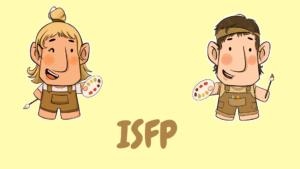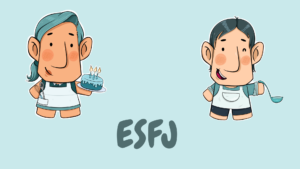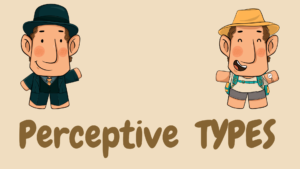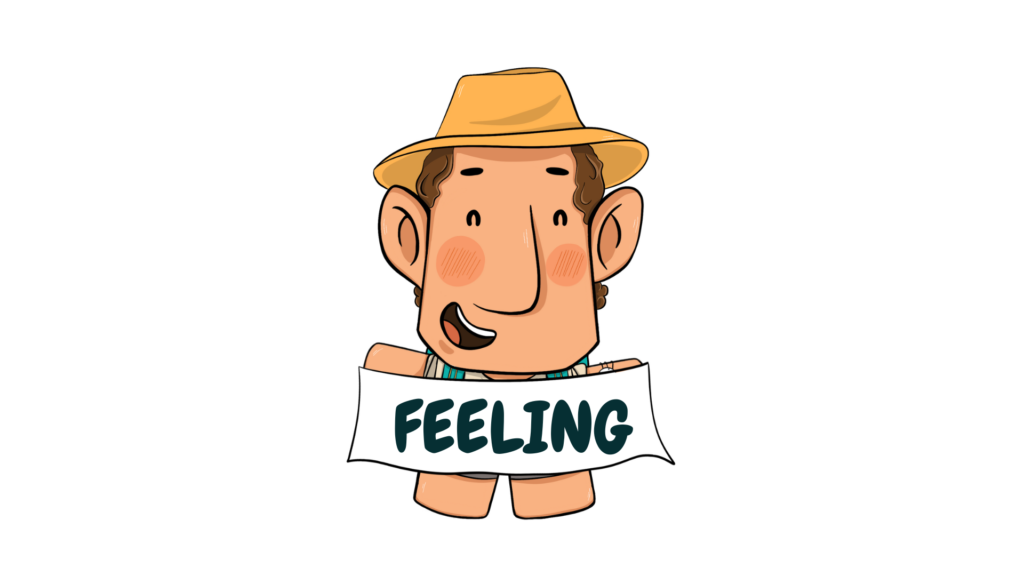
When you’re standing at the crossroads of decision-making, do your emotions sometimes scream so loud that even your inner logic can’t get a word in edgewise? Do you have a sixth sense for picking up on the vibes of those around you, like a human mood ring? And when it comes to interactions, are you the kind of person who would rather sprinkle everything with polite pleasantries or serve up some raw, unfiltered honesty?Exploring your place on the feeling-thinking spectrum is like uncovering a treasure trove within your personality, a journey of self-discovery akin to sleuthing through emotions. While pinpointing your exact position may be challenging, it’s part of the thrill. Most individuals have a unique mix of feeling and thinking traits, with one usually dominant. Neither feeling nor thinking rules all personalities. Embrace your diverse characteristics unique blend.
Where Did the Feeling Word Come From?
Carl Jung’s exploration of feeling as a psychological concept revolutionized our understanding of emotions and values. He identified feeling as one of the four psychological functions, emphasizing its role in shaping our responses and worldview. Jung’s distinction between extraverted and introverted feeling laid the groundwork for personality tests like the MBTI. His work continues to influence counseling and therapy, enabling individuals to unravel their emotional landscapes and make meaningful connections. Jung’s insights into feeling as a psychological powerhouse have left an enduring impact on psychology, shaping our understanding of personalities and relationships.
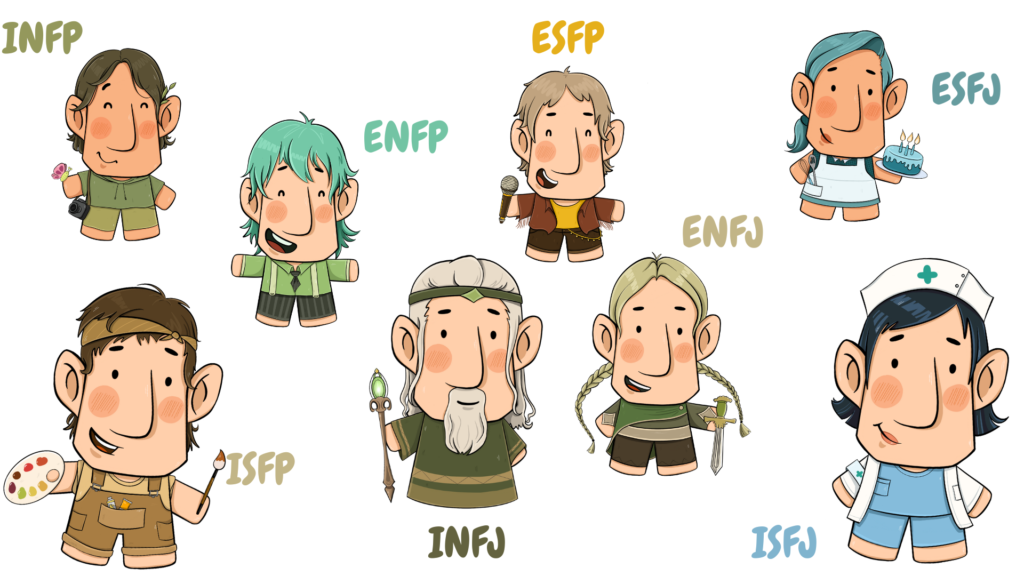
Broadened Perspective on Feeling
Contemporary psychology has expanded our understanding of feelings, revealing their intricate processes involving cognitive, physiological, and social components. Neuroscience has uncovered the brain’s role in processing emotions, emphasizing the interplay between biology and psychology. Social psychology highlights the influence of culture and social context on emotional responses, while positive psychology emphasizes emotional well-being and cultivating positive emotions. This multidimensional perspective transcends Jung’s framework, integrating neuroscience, social psychology, and positive psychology to gain a deeper understanding of human emotions’ impact on thoughts, behaviors, and relationships. Feelings are not just reactions to stimuli but complex experiences shaped by biological, social, and psychological factors, offering valuable insights into our emotional lives.
Heightened Characteristics of Feeler Individuals
Empathy
Feeling individuals are the emotional detectives of the world, always ready to solve the mystery of other people’s feelings. They’re like Sherlock Holmes with a heart, picking up on emotional clues faster than you can say “elementary, my dear Watson.”
Emotional Awareness
Feeling individuals have a radar for emotions that puts even the best psychic hotline to shame. They can sense a change in emotional weather from miles away, making them the ultimate emotional forecasters with a flair for dramatic readings.
Sensitivity
Feeling individuals have emotions as delicate as a soap bubble in a hurricane. They feel everything so intensely, it’s like living life in high-definition emotional technicolor. Their sensitivity is like having emotional superpowers, but with great power comes great…emotional rollercoasters.
Authenticity
Feeling individuals are the emotional truth-seekers, always on a quest for genuine connections and honest interactions. They’re like emotional lie detectors in a world full of fibbers, sniffing out the real deal and building relationships based on trust, vulnerability, and a healthy dose of sarcasm.
Emotional Depth
Feeling individuals have emotional oceans inside them, with depths that rival the Mariana Trench. They’re like emotional scuba divers exploring the intricate coral reefs of their feelings, uncovering hidden treasures of self-awareness and insight while occasionally getting lost in the Bermuda Triangle of their own emotions.
Empathic Listening
Feeling individuals have ears that are finely tuned to the emotional frequencies of others. They’re like emotional DJs spinning empathy and understanding into a harmonious playlist of support and validation for those in need, with a special remix of heartfelt advice and a sprinkle of awkward but well-meaning jokes.
Development and Nurturing of Feeling
Developing and nurturing our feelings is a complex and ongoing process that requires self-awareness, empathy, and a willingness to embrace the full spectrum of emotions. It is like tending to a delicate garden, where each emotion is a unique flower that requires care and attention to flourish.
Self-awareness is the foundation of emotional development. It involves recognizing and understanding our own emotions, triggers, and patterns of behavior. By tuning into our feelings without judgment, we can gain insight into our inner world and learn to navigate our emotional landscape with greater ease.
Empathy is another essential component of emotional growth. It involves the ability to understand and share the feelings of others, fostering deeper connections and relationships. By practicing empathy, we can cultivate a sense of compassion and understanding that enriches our interactions with others and helps us navigate complex emotional situations with grace.
Nurturing our feelings also involves developing healthy coping mechanisms and self-care practices. This may include engaging in activities that bring us joy, seeking support from loved ones, or practicing mindfulness and relaxation techniques. By prioritizing our emotional well-being and taking steps to address our needs, we can build resilience and strengthen our emotional health.
Overall, developing and nurturing our feelings is an ongoing journey that requires patience, self-reflection, and a willingness to engage with our emotions in a healthy and constructive way. By cultivating self-awareness, empathy, healthy coping mechanisms, and a sense of humor, we can foster emotional growth and resilience, leading to a more fulfilling and balanced life.

Pros and Cons of Being a Feeler
Pros of Being a Feeler
• Emotional Intelligence and Empathy
Feelers are often praised for their remarkable emotional intelligence and empathy. While it’s wonderful to be everyone’s emotional rock, the irony lies in the fact that they sometimes end up being “unofficial therapists” for everyone they know, offering endless emotional support comparable to a 24/7 counseling service. Who needs a professional therapist when they have a Feeler friend?
• Conflict Resolution and Diplomacy
Feelers are typically great at resolving conflicts and maintaining harmonious relationships. It’s almost comical how they can turn heated debates into calm discussions. Who needs a UN peacekeeping force when you have a Feeler in the room?
• Authentic Connections and Rapport
Feelers excel at creating genuine connections with others. The irony here is that while they expertly forge deep relationships, their own emotional sensitivity often leads to becoming the go-to source for everyone’s relationship problems. They might as well add “Emotional Consultant” to their resumes!
• Creativity and Insightful Intuition
Feelers bring intuitive and creative ideas to the table. The irony lies in the fact that while they’re navigating their emotional rollercoaster, they somehow manage to craft beautiful symphonies, write Shakespearean sonnets, and flawlessly predict everyone else’s love lives (except their own, of course).
• Positivity and Compassion
Feelers are often peacemakers, spreading positivity and compassion. The irony here is that while they diffuse tension and uplift others, their emotional generosity sometimes inadvertently leads to emotional burden and a closet full of tissues for friends’ tears.
Cons of Being a Feeler
• Emotional Vulnerability
Feelers may find themselves emotionally overwhelmed by just about anything. The irony? They’re the first to offer a listening ear or a shoulder to cry on, yet sometimes struggle to find someone to reciprocate their own emotional support—cue the sad violin music.
• Conflict Avoidance
While they excel at soothing conflicts and promoting harmony, they can occasionally find themselves avoiding necessary confrontations. The irony is that while they’re resolving everyone else’s issues, their own conflicts often end up in the emotional attic, just waiting to be organized and decluttered.
• Stress and Overwhelm
Feelers’ emotional sensitivity can lead to increased stress and overwhelm. The irony? They’re the calming voice when everyone else is stressed, but sometimes they’re secretly Googling “How to remain serene in a chaotic world.”
• Balancing Objectivity and Subjectivity
The struggle to balance emotions and rationality is a classic con for Feelers. The irony? They’re amazing at offering rational advice, but applying that wisdom to their own emotional rollercoaster can sometimes be like trying to apply a Band-Aid to a tidal wave.
• Self-Sacrifice
Feelers may prioritize others’ needs over their own. The poignant irony is that they’re the unsung heroes of emotional support, yet often end up neglecting their own needs, dreaming of a day when they’ll have a personal emotional assistant on speed dial.

Feeling Assessment Methods
Emotional Intelligence (EI) Assessments
Emotional Intelligence assessments evaluate an individual’s ability to perceive, understand, and manage emotions, both within themselves and in others. They often include self-assessment and evaluations from others to gauge emotional awareness and social skills.
Personality Assessments (e.g., Myers-Briggs Type Indicator, Big Five Personality Traits)
Personality assessments often include dimensions related to emotional tendencies, such as empathy, assertiveness, sensitivity, and sociability. These assessments provide insights into how an individual emotionally engages with the world and navigates social interactions.
Self-Report Measures
Self-report measures involve individuals providing subjective assessments of their emotional experiences and responses to various situations. These can range from simple mood diaries to more complex questionnaires that probe emotional regulation, expression, and overall well-being.
Behavioral Observations and Interviews
Observing an individual’s behaviors in various situations and conducting interviews can provide valuable qualitative data on their emotional expression, empathy, and social interaction. It offers insights into how individuals navigate and respond to emotional scenarios in real life.
The Abundance of Feeler people
While it’s impossible to provide an exact number of “Feeler” individuals worldwide, it’s safe to say that a significant portion of the global population embodies qualities associated with empathy, emotional sensitivity, and a strong penchant for understanding and connecting deeply with others.
It’s as if the world itself is a rich tapestry, woven together by the myriad feelings and emotional encounters that shape the human experience. From bustling cityscapes to serene rural landscapes, from corporate boardrooms to cozy family kitchens, the fabric of human interaction is intertwined with these emotional threads that collectively define our shared humanity.
In homes, workplaces, and communities across the globe, countless individuals embody the qualities of empathy and emotional connectedness that characterize the Feeler archetype. Whether consoling a friend, mediating a dispute, or simply sharing in the joys and sorrows of others, these individuals offer an invaluable contribution to the collective emotional landscape of humanity.
Across cultures, languages, and traditions, the abundance of Feelers forms an intricate network of emotional support, compassion, and understanding. This emotional abundance is not merely a numerical count, but a testament to the profound impact of empathy and emotional wisdom on the human experience.
Imagine a vast web of emotional connections spread across the world, where each individual represents a node, contributing to the collective emotional consciousness. In daily interactions, the countless acts of kindness, understanding, and compassion create a ripple effect, shaping a world where empathy and emotional connectedness are a cornerstone of the human experience.
While precise numbers remain elusive, the pervasive influence of Feeler individuals is evident in the countless emotional encounters that unfold daily, shaping the interconnected and compassionate fabric of human society.
In essence, the world is enriched by the abundance of Feelers, offering a reminder that the emotional wealth they bring to the human experience transcends any quantifiable measure. Their impact is immeasurable and resonates deeply across the tapestry of human emotions.

